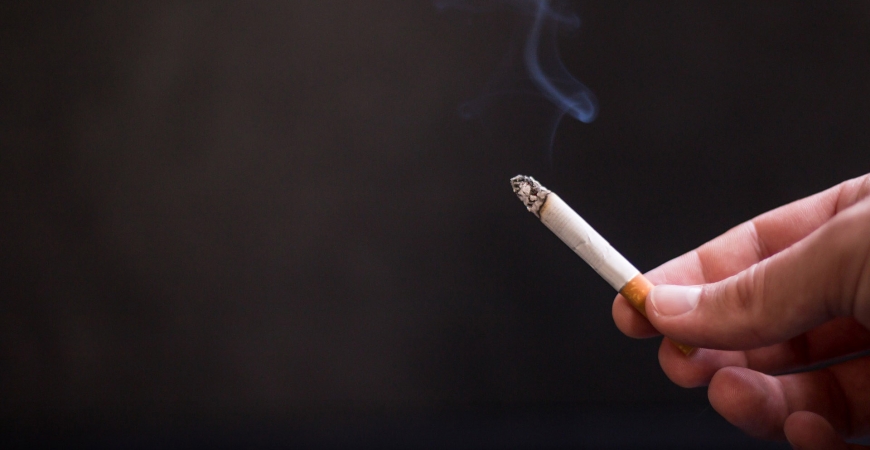
Smokers and former smokers are not only more susceptible to COVID-19, they are far more likely to see their conditions worsen over time and to require intensive respiratory assistance, according to a review released Thursday by the UC Merced Nicotine and Cannabis Policy Center (NCPC).
Furthermore, the health risks may be heightened for people exposed to secondhand smoke and secondhand vaping, it says.
The report by NCPC researchers, “Tobacco Control Is a Critical Component to COVID-19 Management,” summarizes early and emerging international work on COVID-19 and tobacco use from countries that have been battling the novel coronavirus for several months.
“The science suggests that smokers and vapers are at increased risk of contracting the coronavirus,” NCPC Director Anna Song said. “It also suggests that, if they contract the virus, they are less equipped to battle it. It’s really important for us to recognize this risk group and provide all the support we can to help smokers and vapers stay safe and healthy.”
Based on their review of the literature, the researchers, led by Song, explain how smoking and nicotine exposure might increase susceptibility to COVID-19. They also highlight work that demonstrates that current and former smokers are significantly less likely to improve from the illness over time. One study found that smokers who contracted COVID-19 were 14 times more likely than non-smokers to progress to the point where they required intensive respiratory assistance.
Smoking and exposure to nicotine not only weaken the immune system, they increase expression of the ACE2 enzyme in the respiratory system, the report says. COVID-19 binds to ACE2 receptors and “an increase in the receptors may relate to an increased likelihood of contracting the disease,” it says.

The effects of tobacco are not just restricted to smokers. People breathing in secondhand smoke also are at greater risk, given that such exposure weakens the immune system and limits the body’s natural defense against COVID-19.
Researchers said that, in addition to employing preventative measures such as promoting social-distancing and increased hand-washing, successful mitigation of the pandemic should include identification of at-risk populations such as the elderly and those with chronic illnesses. Emerging evidence suggests those considered at risk should include smokers, former smokers and people exposed to chronic secondhand smoke, according to the report.
Globally, nearly 40 percent of children are exposed to secondhand smoke. In the San Joaquin Valley, where UC Merced’s NCPC is located, 56 percent of the population reported being exposed to secondhand smoke or vape, according to the 2018 California Health Interview Survey .
The NCPC has provided suggestions for public health departments to manage and reduce the number of people exposed to secondhand smoke while highlighting the dangers of the COVID-19 threat to current and former smokers.
“Now more than ever, we need to increase protection against secondhand smoke and vapes,” Song said. “Moreover, it’s critical that we ensure that smokers who want to limit their risk have access to cessation tools, like nicotine patches, gum or lozenges. Smokers should also know that the state provides free counselling (1-800-No Butts; www.nobutts.org) for those trying to quit.
“In this time of crisis, it’s so important that we do all we can to blunt the impact of COVID-19,” she said.
The NCPC is funded by the California Tobacco-Related Disease Research Program , which is supported by tobacco tax and individual contributions. NCPC’s mission is to conduct primary tobacco and cannabis research in the San Joaquin Valley and address emerging issues affecting local communities.



